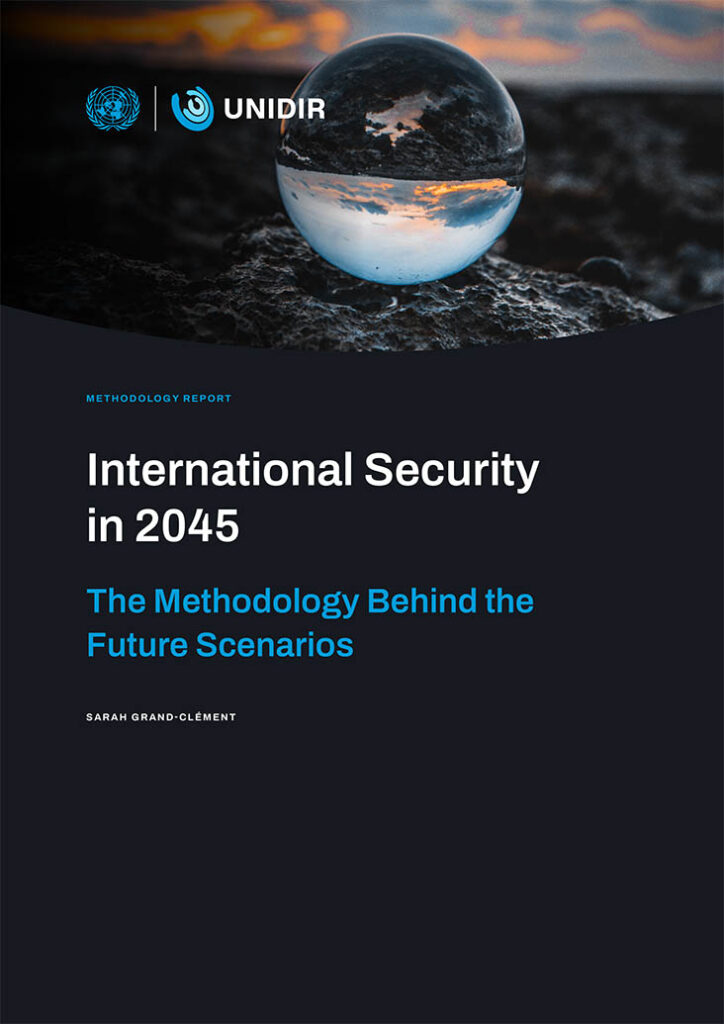The use of foresight and other future-focused methods offers a range of advantages. Futures and foresight methods represent a set of tools which can be used to enable individuals and groups to think about the future in a structured way and to help manage uncertainty. These methods also help users consider the different and complex interconnections and interactions that shape a given context. Therefore, as the future will always remain unpredictable, the aim is not to try to predict the future but to become better prepared to deal with upcoming unpredictability and to increase our resilience in the face of it.
The purpose of this paper is to complement and expand upon the foresight approach used to produce the findings for the International Security in 2045 project. Specifically, this paper provides an overview of the steps and elements which contributed to create the scenarios used in discussions informing the substantive report. This paper also contains the full narrative of the future scenarios themselves.
The main report, which describes the findings of this foresight exercise, is available here.
Donors: The Czech Republic, Germany, Italy, Netherlands, Switzerland, and by Microsoft
Citation: Sarah Grand-Clément, “International Security in 2045: The Methodology Behind the Future Scenarios”, UNIDIR, Geneva, 2024.
